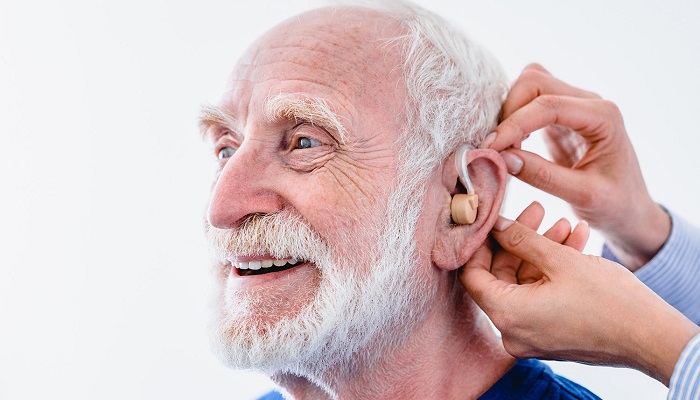For many seniors, hearing isn’t just about catching the lyrics of their favorite song; it’s the gateway to preserving memories, engaging in lively conversations, and ensuring safety.┬Ā
However, the power of hearing goes far beyond these daily tasks, deeply influencing cognitive function, emotional well-being, and physical health. Selecting the optimal hearing aid not only amplifies sound but significantly enriches the quality of life.
The Connection Between Hearing and Cognitive Health
The intricacies of the human brain demonstrate how interconnected our senses are to cognitive function.┬Ā
Hearing, in particular, has profound effects on mental sharpness and memory. Yet, as we age, natural declines in hearing can lead to more than just missed words in a conversation. The implications touch upon our very cognitive fabric, necessitating the importance of suitable hearing aids.
- Cognitive Load and Strain: Struggling to hear can put an excessive cognitive load on the brain. This strain makes it challenging for seniors to process information, leading to fatigue and decreased mental sharpness.
- Memory and Dementia Links: Multiple studies have demonstrated a relationship between untreated hearing loss and increased risks of dementia. An optimally functioning hearing aid can potentially mitigate this risk, ensuring the brain receives complete and clear auditory input.
Mental Well-being and Social Connections
Humans are inherently social creatures, thriving on connections, shared experiences, and the joy of conversation.┬Ā
Hearing acts as the bridge to this vibrant world of social interactions. As age-related hearing loss emerges, this bridge can weaken, leading to feelings of isolation, detachment, and emotional distress. But, with the right hearing assistance, it can be reinforced and revitalized.
- Avoiding Social Isolation: With the correct hearing aid, seniors can actively participate in conversations, leading to improved social connections. They’re less likely to avoid social situations because of hearing challenges, which in turn fosters a sense of belonging.
- Maintaining Emotional Health: Being part of a community and staying connected contributes to emotional well-being. By reducing feelings of isolation and facilitating communication, optimal hearing aids can play a pivotal role in bolstering mental health.
Physical Health and Safety Considerations
Sound often serves as an alert system, guiding our reactions and keeping us safe. From the distant honk of a car horn to the subtle chirping of a morning bird, these auditory signals shape our responses to the environment.┬Ā
When hearing is compromised, especially in seniors, it’s not just the richness of sound that’s at stake; personal safety and physical health become vulnerable.
- Preventing Falls: A correlation exists between hearing loss and an increased risk of falls. By amplifying sounds and improving spatial awareness, the right hearing aid can help seniors navigate their environments more confidently.
- Increasing Environmental Awareness: Everyday sounds like traffic noises, alarms, or someone calling out can be crucial for safety. By ensuring these sounds aren’t missed, hearing aids can play a critical role in daily security.
Key Factors in Optimal Hearing Aid Selection
The world of hearing aids is vast and diverse, much like the individuals seeking them. As technology has evolved, so have the options available to those with hearing impairments.┬Ā
But with variety comes the challenge of choice. To make an informed decision, one must weigh a plethora of factors, each of which can drastically affect the hearing experience.
- Type of Hearing Loss: Different aids cater to various types of hearing loss, such as conductive, sensorineural, or mixed. Proper diagnosis ensures the most effective solution.
- Lifestyle Needs: A person who attends many social events might require different features compared to someone with a quieter lifestyle. Consideration of daily activities can guide the selection process.
- Comfort and Aesthetics: Just like eyeglasses, hearing aids should be comfortable and suit individual aesthetic preferences. They come in various styles, from nearly invisible in-ear models to behind-the-ear designs.
Conclusion
In a world rich with sound, ensuring that seniors can hear clearly is more than just a quality of life issueŌĆöit’s a holistic approach to their well-being.┬Ā
The best hearing aids for seniors empower them with improved cognitive function, better emotional well-being, enhanced physical safety, and a deeper connection to the world around them. Through educated choices in hearing aids, we can pave the way for a brighter, fuller experience in their golden years.


















